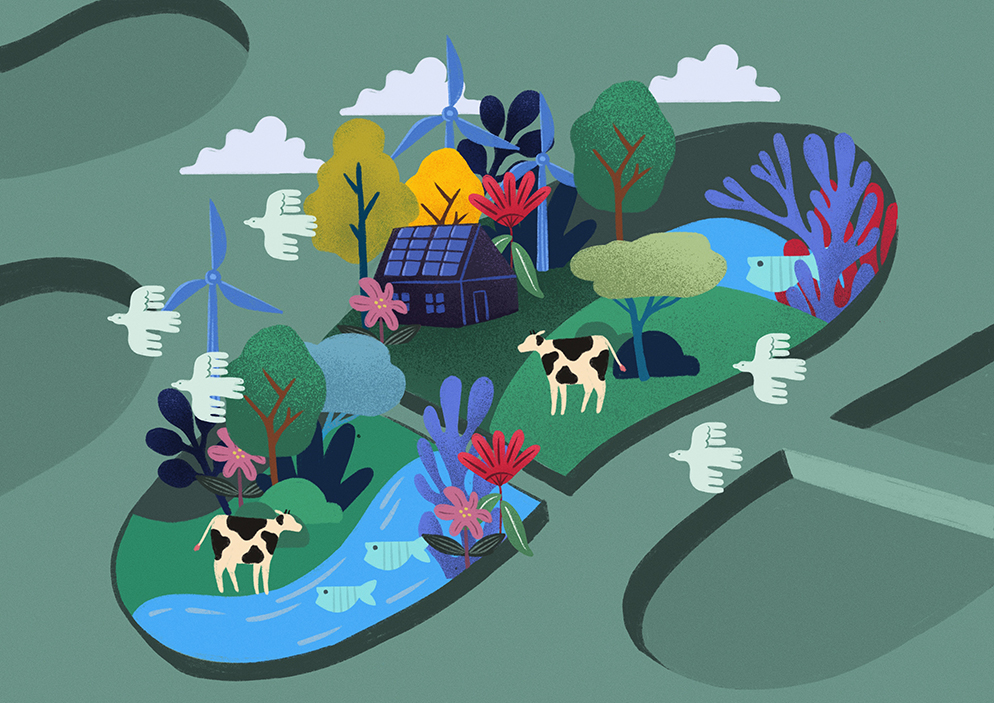
Joaquin Campos: Stewarding sustainability for the sustenance of all
by Franchette Mary Therese Silva
Ateneo de Manila University has long been dedicated to fostering academic excellence among its students, preparing them to be leaders in their chosen fields. Yet, the university's influence extends beyond the classroom, shaping individuals who are driven by purpose and a commitment to the greater good. This is evident in the story of Joaquin Campos (BS ES 2020), an Ateneo alumnus whose passion for environmental science and sustainability has guided his journey as an environmental scientist. Having contributed to climate and disaster resilience and advancing Sustainable Development Goals (SDGs), Campos embodies the university’s mission to cultivate responsible stewards of the planet.
The Beginning of a Lifelong Passion
Campos’ passion for the field took root long before his college years. As a child, he spent countless hours outdoors with his family, finding comfort and freedom in nature. “I’ve never been used to being in confined spaces growing up,” he admits. This love for the outdoors earned him the playful nickname “Kuya Kin” (short for “Joaquin”), a nod to his father’s nickname, “Kuya Kemp.” The two were often referred to as a tandem, their nicknames referencing the popular Filipino television presenter and nature explorer, “Kuya Kim”. Though a source of family humor, these nicknames also held practical significance, as they both found meaning in traveling and exploring new places together.
Campos’s passion for environmental science blossomed in high school when his chemistry teacher introduced him to the hard sciences, sparking an appreciation for the subject. This new interest inspired him to pursue a career where he could engage directly with the environment—one that would place him “boots on the ground,” actively addressing environmental challenges rather than observing them from afar. Driven by this vision, he chose to pursue his higher education at Ateneo, believing it was the right fit for his aspirations and goals.
From Classrooms to Communities
In 2015, Campos began his journey as an Environmental Science major at the university, eager to immerse himself in the field and make a meaningful impact. His college years were a blend of academic rigor and transformative experiences, balancing coursework with hands-on opportunities such as fieldwork and immersion programs. Among the most formative of these was his Praxis immersion held in Masinloc, Zambales. Here, he worked alongside a mining community, gaining invaluable insight into the delicate relationship between human life and environmental sustainability.
“It was such a great experience for all of us because it took what we learned in the classroom setting and applied it to an actual community,” Campos shared. This project spanned from his second year to his third year wherein they had to communicate with the members of the local community and create a risk hazard map—a task they talked about in Geology class. However, throughout this project, the fieldwork evolved into a culmination of various things they had learned from the program including geology, monitoring, and biology.
“We had zero experience talking to local communities. As students, we weren’t used to it,” Campos admitted. “However, it taught me something I love doing: trying to communicate some technical jargon to people who didn’t even know this kind of data existed.” The data gathered from this fieldwork turned out to be very useful to the local community, and he realized that it was of utmost importance that they knew how to communicate all the technical information to them. “It was very useful to them because as a mining community, or rather a community situated next to a mine, even though it has since been abandoned, they'd be the first to be affected,” he explained.
These fulfilling experiences gave him a clearer understanding of the importance of applied knowledge, eventually pushing his desire for something more. “ES used to be a five-year program in Ateneo, and I'm pretty sure it's four years now. And personally, as someone who wanted more specialization, I took Sustainability as a minor,” he shared. This decision aided him most especially when it came to informing him of what to cover for his thesis.
Building Resilient Urban Systems
Campos explained that the thesis he worked on was very cities and systems-thinking-based, which involved trying to understand and correlate interconnections that are not as apparent. “If I can’t find something that was very specific,” he thought, “what if I just stay broad but also try to find interconnections between things that I don’t necessarily find easy to see.” This approach allowed him to explore how different elements within urban systems interact and influence one another, providing a unique lens to address the complexities of environmental and urban resilience.
His thesis work was conducted under Coastal Cities at Risk in the Philippines (CCARPH) — an initiative aimed at strengthening the resilience of Philippine coastal cities to climate change and disaster risks. This project, initially given as a classroom assignment, turned into a real-world model as encouraged by his thesis adviser.
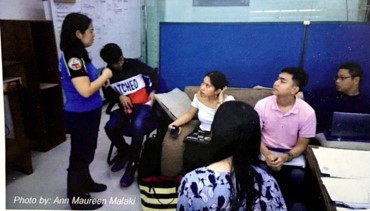
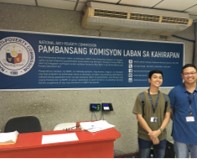
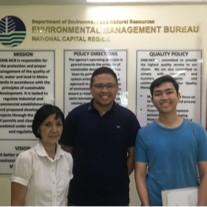
“Essentially, the work that we did for the thesis, we applied it as a mathematical model to Pasig and Valenzuela City,” he explained. Through this work, he realized just how challenging it is to capture the essence of a city’s adaptability to specific hazards. Even with a deep understanding of their services and operations, as he had with Pasig and Valenzuela, there remained gaps in understanding how these cities interacted with one another within the broader urban system.
However, Campos emphasized that it is still important to uncover these connections, such as how a city’s services may influence trade-offs within another city. For instance, if a city prioritizes industrial development without considering its impact on surrounding areas, it may inadvertently strain shared resources like water and energy or increase vulnerability to flooding in nearby communities. Without consideration of these trade-offs and synergies, interventions risk solving one problem while exacerbating others, ultimately undermining efforts toward sustainability.
Later on, Campos’s research and thesis were honored with the Ateneo Socio-Civic Engagement for National Development (ASCEND) Award, granting both the Citation Award For Seniors Group Research and the Seniors Excellence Award for Group Seniors Thesis. With these achievements under his belt, he now faced the question: what focus would he pursue in his professional career?
Collaboration for a Sustainable Future
As someone who struggled to find a specific niche within the broad field of environmental science, Campos believed it was essential to gain experience across different sectors. After graduating, he took internships and jobs that involved further research in his field. This involved the promotion of SDGs and work with the Ateneo Institute of Sustainability (AIS). After some time working with the AIS, where he honed his skills in academic and institutional approaches to sustainability, he decided to broaden his perspective by exploring the nonprofit sector. This decision led him to WWF Philippines, where he became a Community-Based Plastic Initiative (CBPI) officer.
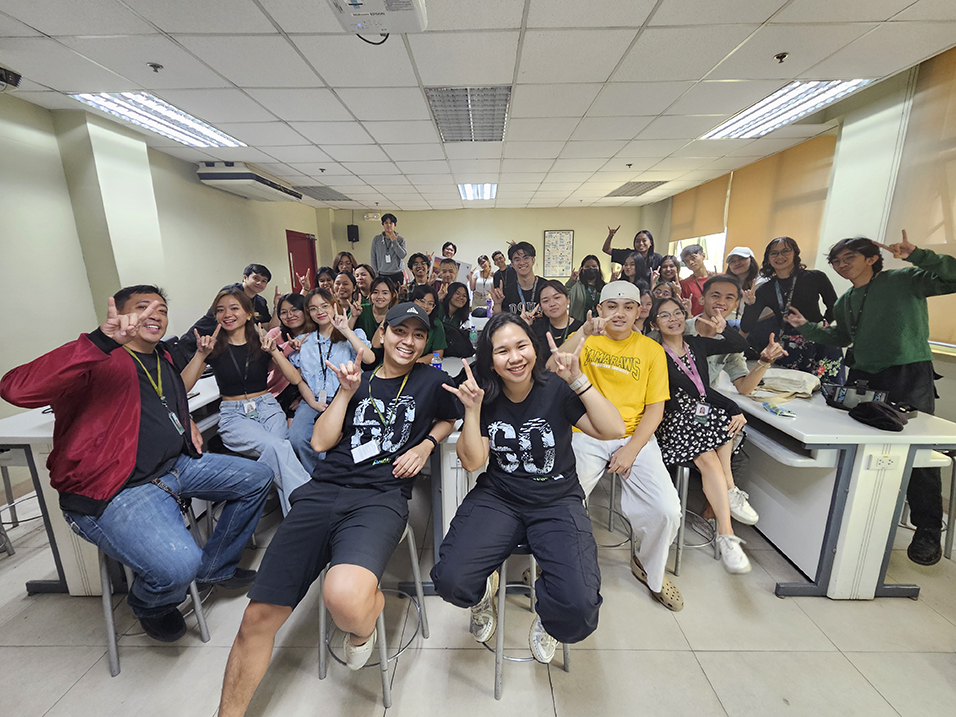
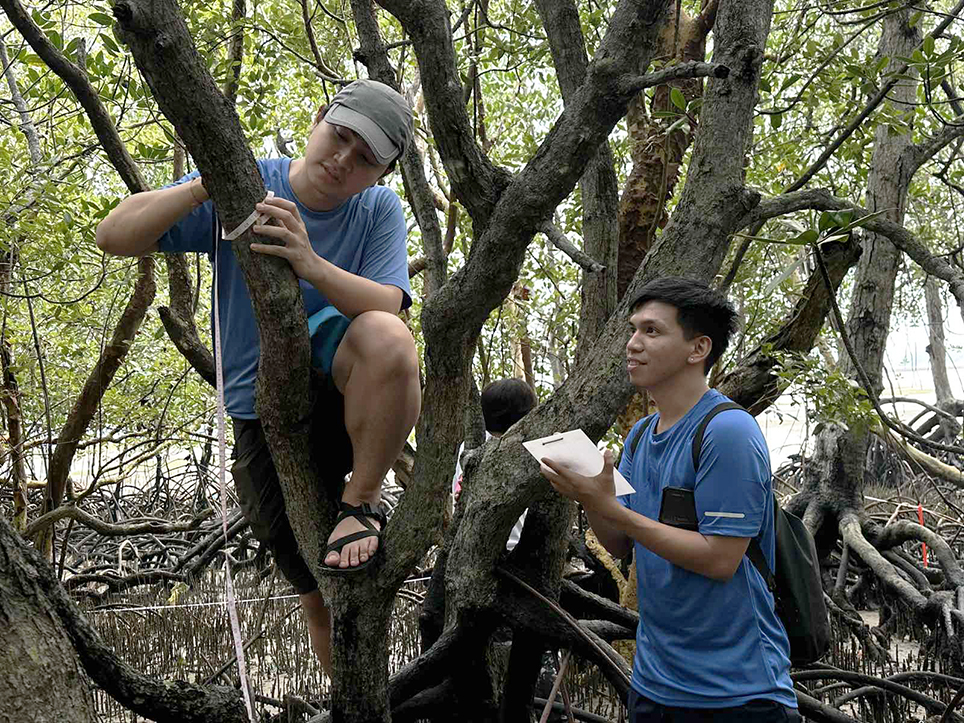
Campos’ work with CBPI provided him with invaluable insights into sustainability efforts in the nonprofit sector. CBPI focuses on fostering long-term partnerships with corporations to promote sustainable practices. Campos explained that the initiative takes a unique approach by emphasizing sustainability as a continuous, cyclical journey. “Wherever someone may be in their decarbonization journey, there will always be room for improvement, optimization, and grander aspirations,” he shared. Rather than offering one-time advisory services, CBPI works collaboratively with companies to embed sustainable practices into their operations over the long term, aligning with both the companies' goals and WWF’s mission as an NGO.
Campos shared a notable success story where CBPI helped a corporate partner, initially without a net-zero goal, transition towards establishing one aligned with the Nationally Determined Contributions (NDCs)—a country’s climate action commitments under the Paris Agreement. This achievement is particularly significant given the absence of a defined national net-zero emissions target in the Philippines, demonstrating CBPI’s ability to bridge gaps in sustainability knowledge and practices, particularly in contexts where sustainability efforts are still emerging.
One of Campos’s favorite moments in CBPI was witnessing the impact of a mangrove workshop he helped organize. The workshop not only educated local communities about the importance of mangroves but also empowered them with actionable insights derived from CBPI’s research. “It’s fulfilling to see the outputs of our work being used meaningfully by the people who need it the most,” he reflected. This experience cemented his belief that sustainability efforts must serve both people and the planet.
Through his time at CBPI, Campos gained a deeper appreciation for the complexities of sustainability work in the Philippine context. The challenges of navigating corporate hesitations, fostering genuine partnerships, and ensuring data-informed decisions reaffirmed his commitment to a purpose-driven career. He sees his work as part of a larger effort to shape a more sustainable future, one partnership at a time.
The Legacy of Stewardship
When asked about the broader role individuals outside his field can play in promoting sustainability, Campos emphasized that contributing to environmental efforts does not require a specific background in hard science. He believes that every person can make a meaningful impact simply by being aware of and engaged with their surroundings. He explained that living in any environment, even a highly urbanized area, connects people to a larger ecosystem. Recognizing this connection and being a responsible steward of one's community can drive positive change, regardless of one's professional field.
This perspective extends beyond individuals. Campos envisions a future where collaboration between the public and private sectors is prioritized to advance sustainability in the Philippines. Having worked in an NGO that partners with large corporations, he recognizes the power of aligning the goals of businesses with broader environmental aspirations. As he noted, “Sustainability efforts should no longer be limited to actions like banning plastic straws or tree planting events. Instead, it’s about fostering a holistic approach that integrates multiple sectors, from the government and business to local communities.”
Campos emphasized the importance of a "whole of society" approach, a concept echoed in global frameworks like the Paris Agreement. In his view, the future of sustainability in the Philippines depends on partnerships that transcend sectors and industries. This vision for greater collaboration reflects a recognition that no single entity—whether corporate, governmental, or community-based—can solve sustainability challenges alone. By working together, these groups can create a unified, more effective approach to addressing the nation’s environmental needs.
Ultimately, Campos’ vision for sustainability and urban development revolves around four keywords: biophilia, mimic cities, adaptive reuse, and placemaking. Biophilia emphasizes humanity's innate connection to nature, even in urban settings, urging cities to recognize their dependence on natural resources and design with environmental harmony in mind. Mimic cities extend this idea by drawing from ecosystems and creating urban networks that reflect nature’s interconnectedness, such as using migratory patterns to inform infrastructure. Adaptive reuse promotes repurposing existing structures to reduce waste and preserve cultural heritage, allowing cities to evolve sustainably. Finally, placemaking combines ecological integrity with human comfort, designing spaces that foster vibrant, livable communities where nature and people coexist seamlessly.
Reflecting on his environmental journey thus far, Campos expressed deep gratitude for the mentorship and support he received at Ateneo. He credits Dr. Kendra Gotangco Gonzales, his thesis advisor, whose guidance in the systems thinking approach allowed him to see the bigger picture and broaden his perspective on various concerns in his field. He also credits Dr. Severino Salmo, who emphasized the triple bottom line—people, planet, and profits—and instilled in him the idea that everything is interconnected. This lesson has stayed with him throughout his career, guiding his work with CBPI and reinforcing the belief that sustainability requires more than profit-driven goals.
Campos' work is a testament to the enduring power of the triple bottom line. True progress, he believes, comes when we consider not just the financial gains, but the larger impact on society and the environment. By prioritizing the well-being of people and the planet, he exemplifies what it means to be a true steward of the Earth.
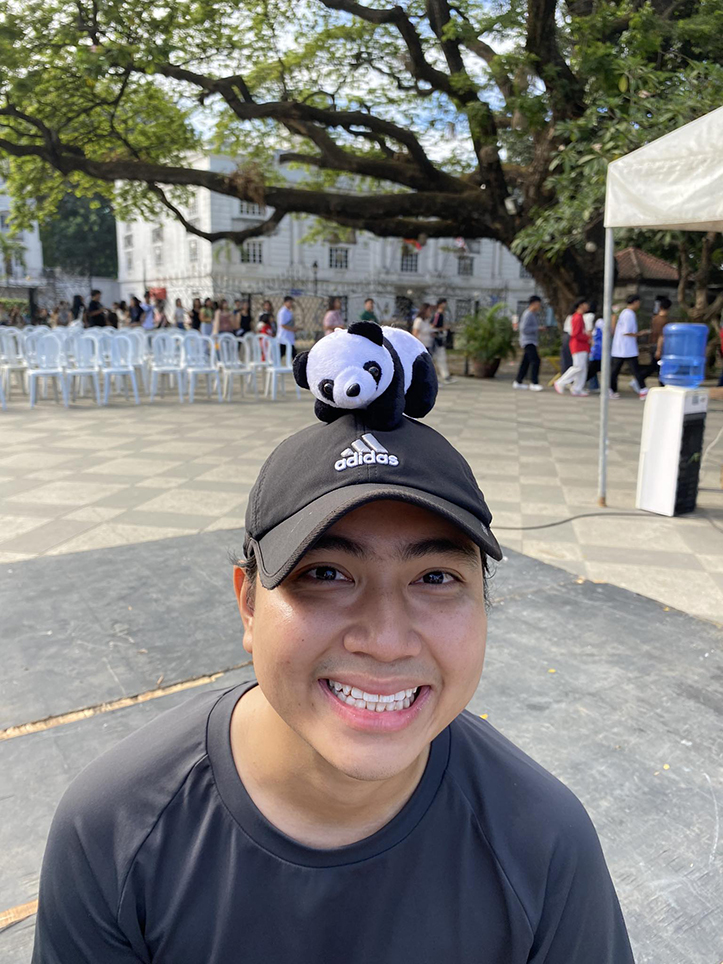

Published by the
Office of University Development and Alumni Affairs
Ateneo de Manila University
Fr Norberto "Kit" Bautista SJ
Publisher
Rica Bolipata-Santos PhD
Editor-in-Chief
KD Suarez
Editor
Margarita Santos
Franchette Mary Therese Silva
Renée Nuevo
Contributors
Andrea Bautista
Art Director/Graphic Designer
Ateneo alumni can update their information by emailing OUDAA at
alumnirelations@ateneo.edu
Contributions
fabilioh@ateneo.edu
Facebook
facebook.com/AteneoOAR
